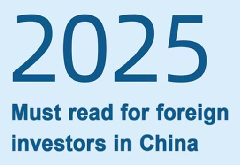SAMR Issued the Measures for the Administration of Imported Medicinal Materials
To strengthen the administration and guarantee the quality of imported medicinal materials, on May 16, 2019, the State Administration for Market Regulation (SAMR) issued the revised Measures for the Administration of Imported Medicinal Materials (SAMR Order No. 9, hereinafter referred to as the Measures).
The Measures has been adopted upon deliberation at the 8th SAMR Conference on April 28, 2019, and shall enter into force as from January 1, 2020. The Measures for the Administration of Imported Medicinal Materials (Interim), promulgated by the former State Food and Drug Administration on November 24, 2005, shall be repealed simultaneously. The current Measures consists of 35 Articles in 7 Chapters. Regarding the administration of imported medicinal materials, the Four Strictest requirements and the standards for medicinal materials are strictly enforced, and traceability management is reinforced. Furthermore, the Measures embodies the reform requirements of Streamlining Administration, Delegating More Powers to Lower-level Governments and Society, Improving Regulation and Optimizing Services, requiring classified management on initial import and non-initial import of medicinal materials. Highlights include:
I . Encourage imports and reflect interconnection. Given that imported medicinal materials constitute an important part of China's medicinal materials resources, and most of their export sources are countries along the Belt and Road, to encourage import, the Measures abolished the former restrictive Article 4 that A border port permitting the import of medicinal materials may only import medicinal materials produced in the neighboring countries or regions, so as to honor the Belt and Road Initiative, reflecting the spirit of interconnection.
II. Implement the Four strictest Requirements and strictly enforce the standards for medicinal materials. The Measures stipulates that the medicinal materials applied for import shall comply with the national drug standards. Meanwhile, considering that traditional medicines such as Uygur medicine and Tibetan medicine are traditionally more dependent on import, to protect drug use in ethnic minority areas, the Measures stipulates that: in ethnic minority areas, the import of locally customarily used ethnic medicines shall, in the absence of national drug standards, conform to the medicinal materials standards of the corresponding province or autonomous region.
III. Deepen the reform of Streamlining Administration, Delegating More Powers to Lower-level Governments and Society, Improving Regulation and Optimizing Services, and implement classified management. The review and approval of initial import of medicinal materials shall be entrusted to the provincial-level drug administration departments in charge of the applicants. The sample inspection originally undertaken by the National Institutes for Food and Drug Control (NIFDC) shall be, accordingly, entrusted to the provincial drug control institutions. Furthermore, the import management of non-initial-import of medicinal materials has been simplified as per risk levels, whereby the Applicants can seek record filing directly at the competent drug administration department at the port or border port to file the Customs Clearance Form for Imported Drugs.
IV. Reinforce concurrent and ex post regulation and traceability management. In view of the problems existing in the supervision practice, it is further clarified that and the imported medicinal materials shall not be marketed for sale and use unless they pass the port inspection; and the purchase of imported medicinal materials must be accompanied with the request of the supplier's relevant certification dossiers, as well as the strict compliance with the related provisions on drug traceability management. At the same time, it is stipulated that for the import of medicinal materials, the application & acceptance, the results of review and approval, the circumstances of violations of laws and regulations and the resulting penalties shall be disclosed on the websites of national drug administration departments.



